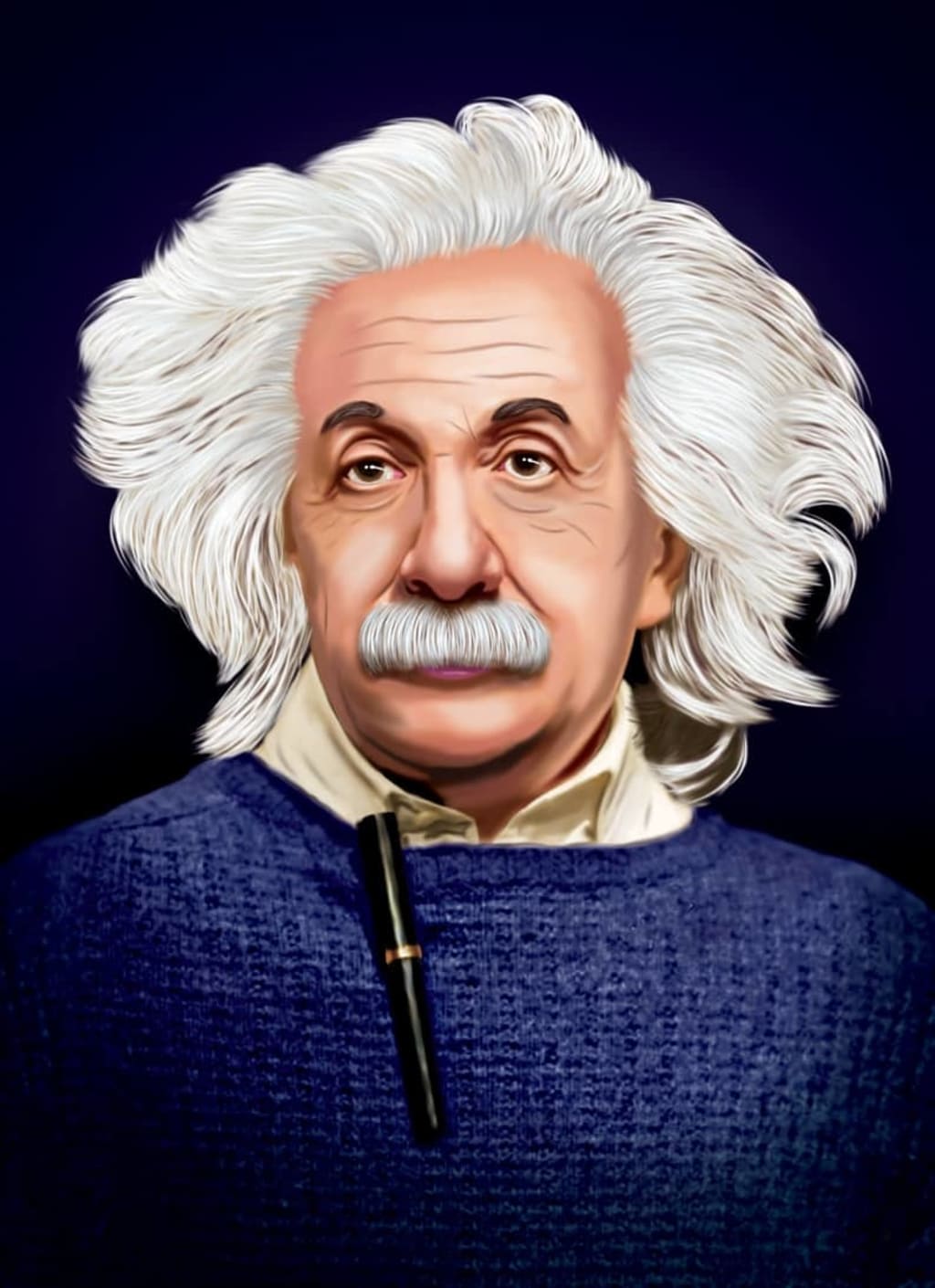What Made Albert Einstein special?
get to Wonderworld chronicles.

Albert Einstein is eminent as perhaps of the most renowned and powerful researcher in history because of a few key variables:
Hypothesis of Relativity: Einstein's hypothesis of exceptional relativity, distributed in 1905, reformed how we might interpret space, time, and gravity. It presented the renowned condition E=mc², which relates energy (E) to mass (m) and the speed of light (c). This hypothesis has been affirmed through various trials and perceptions and established the groundwork for current physical science.
General Hypothesis of Relativity: In 1915, Einstein distributed his hypothesis of general relativity, which broadened the standards of unique relativity to incorporate attraction. It suggested that enormous articles twist the texture of spacetime, causing the gravitational fascination we notice. This hypothesis has likewise been widely approved, with one of its most popular affirmations being the twisting of starlight by the Sun's gravity during a sun based obscure.
Photoelectric Impact: In 1905, that very year he distributed the hypothesis of unique relativity, Einstein made sense of the photoelectric impact, a peculiarity where electrons are discharged from a material when presented to light. His clarification, which included the quantization of light energy into discrete bundles called photons, offered vital help for the arising field of quantum mechanics.
Public Commitment: Einstein's unmistakable appearance and magnetic character made him a VIP past mainstream researchers. He utilized his distinction to advocate for pacifism, social equality, and logical collaboration, making him a conspicuous person of note.
Helpful Endeavors: Einstein's interests about the utilization of nuclear energy in fighting drove him to advocate for atomic demilitarization. He was instrumental in the arrangement of the Crisis Panel of Nuclear Researchers and was engaged with endeavors to advance quiet purposes of atomic innovation.
Commitments to Quantum Mechanics: Despite the fact that Einstein is most popular for his work on relativity, he likewise made significant commitments to quantum mechanics. His thoughts on the wave-molecule duality of light and matter and his scrutinize of the probabilistic idea of quantum mechanics lastingly affected the field.
Here's a more broadened investigation of what made Albert Einstein a well known researcher:
Hypothesis of Relativity: Albert Einstein's distinction generally lays on his progressive hypothesis of relativity. In 1905, he distributed the hypothesis of extraordinary relativity, which presented historic ideas about the idea of room, time, and the universe. Key to this hypothesis was the declaration that the laws of material science are no different for all non-speeding up spectators and that the speed of light is a steady, regardless of the movement of the onlooker. This hypothesis prompted the renowned condition E=mc², which likens energy (E) with mass (m) and the speed of light (c). It was an extreme takeoff from traditional physical science and laid the basis for present day physical science.
General Hypothesis of Relativity: Einstein's overall hypothesis of relativity, distributed in 1915, expanded the standards of unique relativity to consolidate gravity. As per this hypothesis, monstrous items twist the texture of spacetime around them, causing gravitational fascination. This progressive thought prompted expectations like the twisting of starlight by gravity, which was subsequently affirmed during a sun oriented obscure. General relativity on a very basic level reshaped how we might interpret gravity and became one of the foundations of present day material science.
Photoelectric Effect: around the same time as his hypothesis of exceptional relativity, Einstein made sense of the photoelectric impact, a peculiarity where electrons are produced from a material when presented to light. He suggested that light comprises of discrete parcels of energy called photons, and this thought offered vital help for the arising field of quantum mechanics. For his work on the photoelectric impact, he was granted the Nobel Prize in Physical science in 1921.
Notable Condition (E=mc²): Einstein's condition, E=mc², has become perhaps of the most unmistakable condition in physical science. It means the equality of mass and energy and has significant ramifications for atomic material science. This condition assumed a critical part in the improvement of nuclear weapons and thermal power.
Public Engagement: Einstein's unmistakable appearance, described by his wild hair and mustache, alongside his magnetic character, made him a big name both inside and outside established researchers. He wasn't simply a researcher in an ivory tower; he drew in with the general population and the media, which carried complex logical plans to a more extensive crowd. His notoriety expanded well past mainstream researchers.
Helpful Efforts: Past his logical work, Einstein was a supporter for harmony and civil rights. Worried about the utilization of nuclear energy in fighting, he effectively lobbied for atomic demobilization. He was instrumental in the development of the Crisis Board of Nuclear Researchers and attempted to advance the quiet purposes of atomic innovation.
Commitments to Quantum Mechanics: While Einstein is fundamentally connected with his work on relativity, he additionally made huge commitments to quantum mechanics. He proposed the possibility that light can show both wave-like and molecule like way of behaving (wave-molecule duality). He was disparaging of the probabilistic idea of quantum mechanics and broadly said, "God doesn't play dice with the universe," communicating his uneasiness with the possibility of intrinsic haphazardness in the quantum world.
Albert Einstein's notable logical accomplishments, joined with his public commitment and support for harmony, made him a generally perceived and regarded figure. His work reshaped how we might interpret the universe as well as lastingly affected science and society all in all, setting his status as quite possibly of the most popular researcher ever.
Einstein's momentous logical accomplishments, joined with his promotion for harmony and civil rights, added to his status as a generally perceived and regarded figure in the logical world and in mainstream society. His work keeps on molding how we might interpret the universe and stays a wellspring of motivation for researchers and masterminds all over the planet.
ANDREW A. MCKENZIE
About the Creator
Andrew McKenzie
This narrative isn't just a collection of words; it's an invitation to experience empathy in its purest form. Through the lives of its characters, you'll intimately understand the profound impact of climate change.






Comments
There are no comments for this story
Be the first to respond and start the conversation.